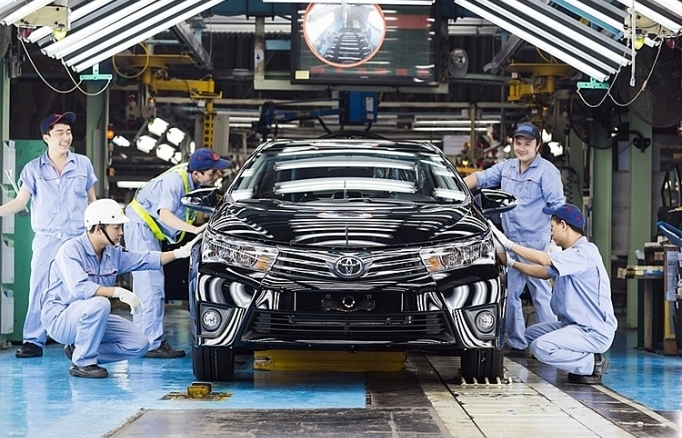Vietnam slashes registration fee by half to rev up domestic car sales
The decision, set to valid until the end of 2020, would help customers save thousands of dollars.
Prime Minister Nguyen Xuan Phuc has agreed to slash the registration fee for domestically-produced cars, which could account for up to 12% of the car price, by half in a move to stir up the car market that is struggling with weak demand.
| Made-in-Vietnam car sales will get a boost with a cut in the registration fee |
The decision, set to be valid until the end of 2020, would help customers save thousands of dollars.
Under the current legislation, registration fees for passenger cars, or cars with less than nine seats, at eight provinces/cities of Hanoi, Quang Ninh, Hai Phong, Lao Cai, Cao Bang, Lang Son, Son La, and Can Tho are 12% of the car price, while in Ha Tinh, the rate is 11%, Ho Chi Minh City, Danang and other cities are 10%.
For a pickup truck, the fee is at 7.2% for the group of the above eight cities/provinces, 6.6% for Ha Tinh, and 6% for other cities.
In case of a Toyota Fortuner with a price tag of VND1.35 billion (US$57,820), a customer would have to pay a registration fee of VND162.4 million (US$6,955), but now the amount is cut by 50% to VND81.2 million (US$3,478) if the car is made in Vietnam.
In addition to a lower registration fee, customers could expect to receive attractive promotions from car dealers as they look to recover from the severe impacts of the Covid-19 pandemic.
Monthly data from the Vietnam Automobile Manufacturers Association (VAMA) revealed car sales in Vietnam are reported at 64,100 units in the four-month period, down 36% year-on-year.
Sales of domestically-assembled cars reached 40,574 units during the period, down 33% compared to the same period of last year, while imported completely-built-units (CBUs) totaled 23,526 units, down 40%.
Nguyen Trung Hieu, head of the VAMA’s Legal Department, told Vietnamnet the sale of its members was 15% lower than initial forecast at the beginning of the year.
However, Hieu expected a 50% reduction in registration fee would help the car market recover and bounce back.
Nguyen Thu Huyen, a saleswoman at a Toyota car dealer in Hanoi, predicted more customers would grasp this opportunity to buy cars.
Echoing Huyen’s view, expert in car market Vinh Nam predicted sale revenues of the industry could increase 30–40% in subsequent months.
Many experts suggested as registration fee cut is applied only to domestically assembled and produced cars, imported completely-built cars would lose the advantage in the long run and may be forced to cut prices to remain competitive.












